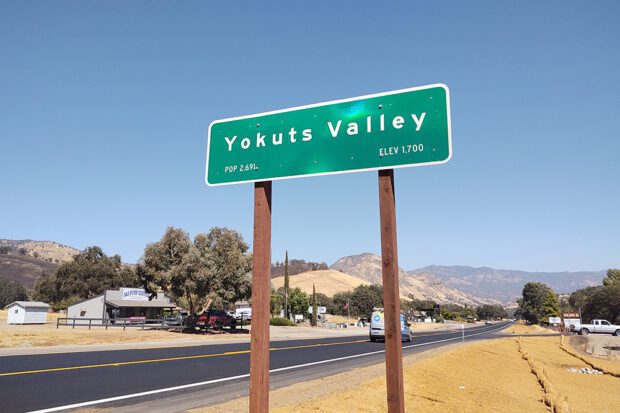Understanding the Misconceptions of Anti-Palestinian Racism
Debunking Anti-Palestinian Racism Myths
In our constantly evolving world, where information is but a click away, it’s important to sift through both facts and misconceptions, especially when it comes to sensitive topics like racism. One area that has attracted considerable debate is anti-Palestinian racism. This issue is often clouded by misunderstanding and polarized perspectives, making it crucial to clarify what is often misconstrued. Let’s dive deep into the intricacies of this subject and peel back the layers of misconception that shroud it.
What Exactly Is Anti-Palestinian Racism?
At its core, anti-Palestinian racism refers to prejudice, discrimination, or violence directed at Palestinians solely because they identify as Palestinian. Sounds simple enough, right? But here’s where it gets tricky—the term can be misapplied or misinterpreted, leading to heated debates and misunderstandings.
Understanding the Context
To comprehend anti-Palestinian racism, you need to consider the complex socio-political landscape of the region. The Israeli-Palestinian conflict has endured for decades, creating a breeding ground for enmity and prejudice on both sides. Much of the anti-Palestinian sentiment comes from long-standing narratives stemming from this conflict. Critics often label any legitimate critique of Palestinian actions as racism, while supporters of Palestinian rights may sometimes cross the line into generalizations or stereotypes that can perpetuate animosity.
Discerning Critique from Racism
Now, let’s take a moment to be honest: critiquing the actions of Palestinian authorities or factions doesn’t inherently equate to anti-Palestinian racism. There’s a critical distinction between questioning policy decisions and harboring biases against a community. The issue arises when that critique morphs into hatred or dehumanization; that’s when we step into the territory of intolerance.
The Misconceptions that Compound the Issue
Let’s dig into some common misconceptions surrounding anti-Palestinian racism, shall we? Often, misunderstandings can be boiled down to two key ideas that circulate within public discourse.
1. All Criticism is Racism
It’s tempting to equate criticism with hatred, especially when emotions run high. However, labeling all criticisms of Palestinian policies or actions as racist oversimplifies an inherently complex situation. Much like any political entity, the Palestinian leadership can be scrutinized without it spilling over into racism.
Consider this:
- Discussions about Policy: Engaging in debates about governance or administrative failures doesn’t warrant accusations of racism.
- Impact vs. Intent: The intention behind comments matters. The line between constructive criticism and harmful generalization should be at the forefront of these discussions.
2. Supporting Palestinian Rights Equals Anti-Israel Sentiment
Another pervasive myth is that advocating for Palestinian rights automatically means one is anti-Israel. The reality is that numerous individuals and organizations support both Palestinian rights and fair treatment of Israelis—believing in peace that honors human dignity across the board. It’s possible to advocate for justice and equity without making enemies in either camp.
Think of it like this:
- Supporting human rights is like rooting for your favorite sports team; you can be a fan of one team while appreciating the skill and merit of another!
Why These Misconceptions Matter
Now that we’ve delved into some major misconceptions, let’s talk about why understanding these nuances matters. When we brush complex issues under the rug with sweeping generalizations, we limit our ability to engage in meaningful conversations that lead to real resolutions.
Building Bridges, Not Barriers
If we focus on dismantling these misconceptions, we can create spaces for dialogue that invite collaboration rather than division. When individuals feel safe discussing sensitive topics, they are more likely to work towards solutions that consider everyone’s humanity, rather than painting entire communities with a broad brush.
- Empower Dialogue: Fostering conversations where all voices are represented can dismantle entrenched perspectives.
- Humanize all Parties: Understanding different narratives can reduce hostility and open avenues for empathy.
The Need for Nuanced Conversations
When was the last time you watched the news and felt like you were getting a full, nuanced picture? It’s rare. Most narratives are oversimplified. Just as no single story encapsulates a person’s life, no one perspective can encapsulate this conflict. Let’s break down how we can approach these discussions more meaningfully.
The Importance of Diverse Voices
Bringing different perspectives to the table enriches the dialogue. By incorporating voices from various backgrounds—Palestinians, Israelis, activists, scholars—you get a fuller picture. Oral history projects, community workshops, and panel discussions can create deeper understanding—breaking down stereotypes and encouraging empathy.
Encouraging Critical Thinking
We must urge ourselves and others to think critically about media portrayal and individual narratives. Educating ourselves on historical context can help attain a clearer grasp of why certain sentiments exist and how they manifest.
- Ask Questions: Why do I hold this belief? What’s the source of my information? Can I grasp the full context?
Practical Steps to Navigate Conversations
Now that we understand these dynamics, how can we engage in conversations about anti-Palestinian racism more effectively? Here are some actionable steps we can all take:
- Listen Actively: Before jumping to conclusions, take the time to understand where the other person is coming from.
- Stay Informed: Read diverse sources and scholarly articles to expand your understanding of the issue.
- Encourage Empathy: When discussing sensitive topics, promote understanding by sharing personal stories or experiences that humanize the situation.
- Challenge Stereotypes: Whenever you encounter stereotypes, be bold enough to challenge them! Show others how complex this issue truly is.
- Participate in Educational Initiatives: Seek out workshops or lectures about anti-Palestinian racism to understand its nuances and engage with people from all sides of the conversation.
Conclusion
In summary, understanding the nuances of anti-Palestinian racism is not just about avoiding misunderstandings; it’s about fostering an environment of empathy and respect. By debunking the myths that cloud our judgment, we can pave the way for more meaningful dialogues that uplift the condition of all human beings. Remember, it’s not just about taking sides; it’s about honoring dignity, justice, and peace for everyone involved.
FAQs
1. What are some signs of anti-Palestinian racism?
Anti-Palestinian racism can manifest as derogatory comments, dehumanization, violence against individuals because of their ethnicity, or discrimination in social and professional environments.
2. Can discussing Palestinian actions be considered racism?
Not necessarily; discussing Palestinian actions constructively does not equate to racism. It becomes problematic only when it devolves into stereotypes or hatred.
3. How can I educate myself on this topic?
Read books, listen to podcasts, attend lectures or workshops, and engage with diverse perspectives to gain a comprehensive understanding.
4. Why do misconceptions about anti-Palestinian racism persist?
Misconceptions persist due to the complexity of the Israeli-Palestinian conflict and the polarized narratives often presented in media.
5. What role does social media play in shaping perceptions of anti-Palestinian racism?
Social media can amplify both positive dialogues and negative stereotypes. It’s essential to critically assess what we encounter online and seek well-rounded sources.







